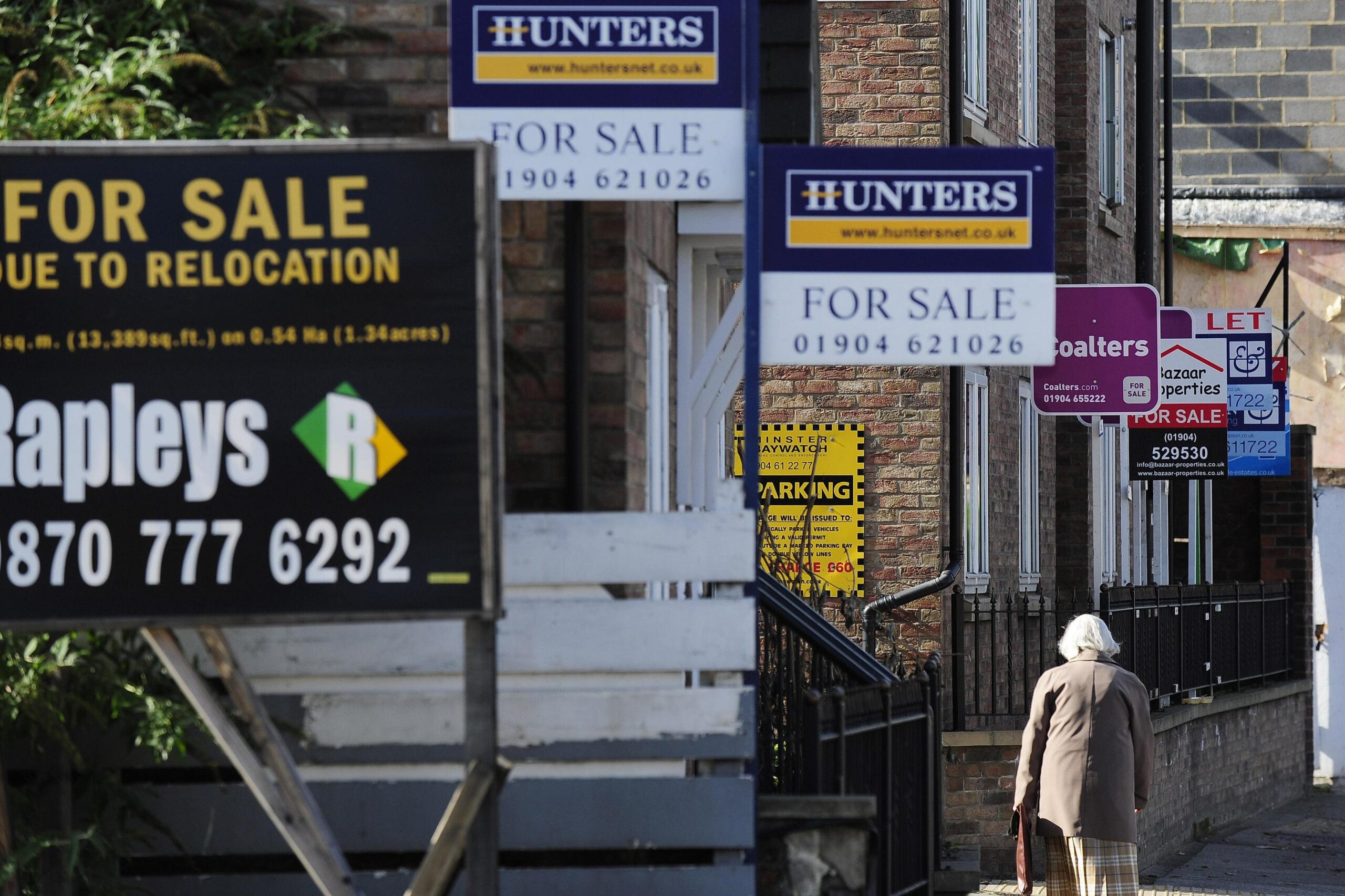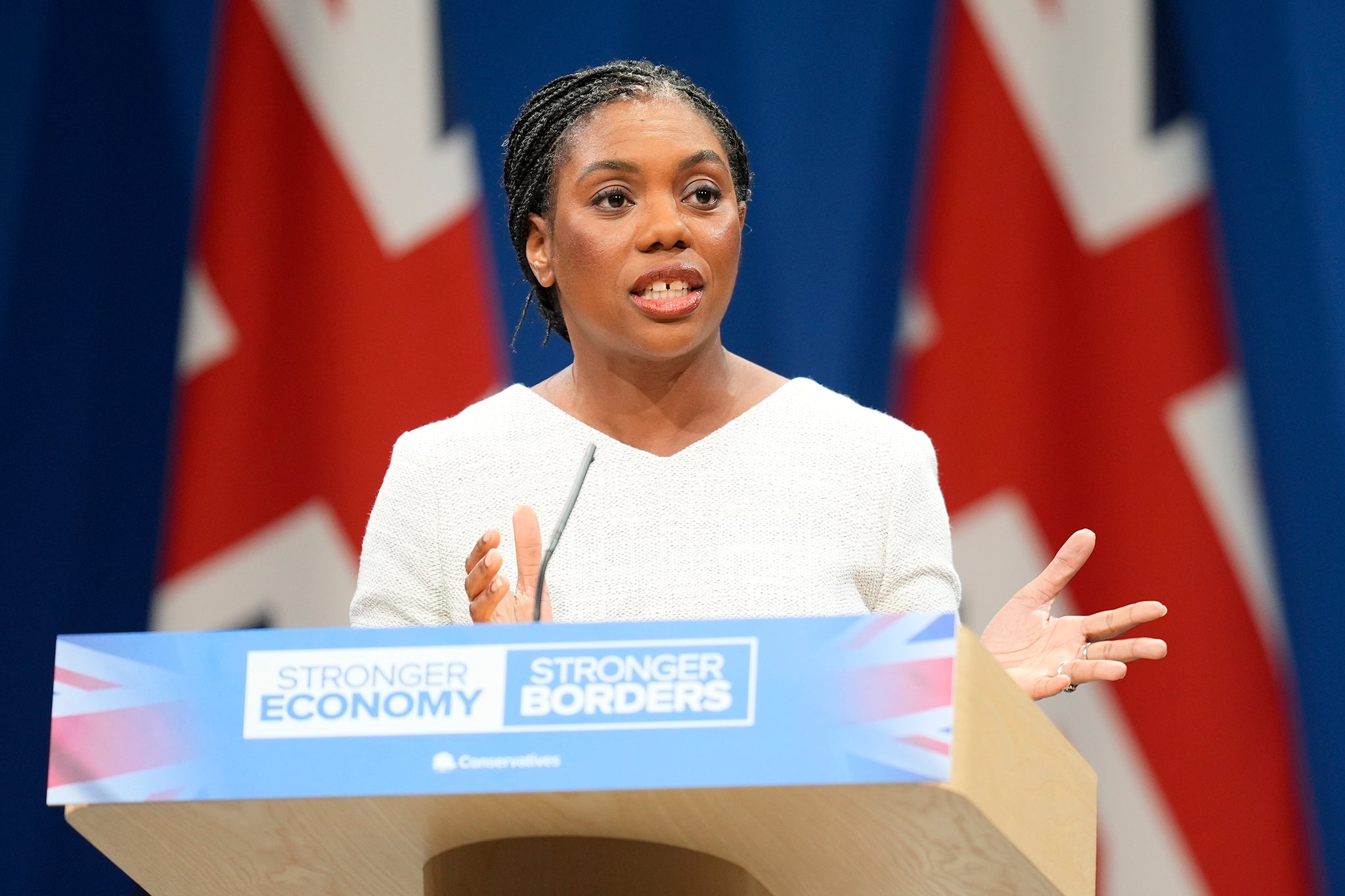Kemi Badenoch has promised to abolish stamp duty if the Conservatives win the next election.
In her speech at the Manchester Convention Centre, Ms Badenoch vowed the move will help “millions” achieve “the dream of home ownership” if the Tories come back into power.
Here is everything you need to know about stamp duty and what the parties are saying about it.
What is stamp duty?
Stamp duty land tax is charged by HMRC, which you have to pay when buying a property or piece of land over a certain price.
You have to pay stamp duty on residential properties in England and Northern Ireland costing more than £125,000, unless you are a first-time buyer. Separate property taxes apply in Scotland and Wales.
If you’re a first-time buyer in England or Northern Ireland, you will pay no stamp duty on property purchases up to £300,000. This is called “first-time buyers’ relief”.

How much does it cost?
The amount of stamp duty you pay is calculated based on the price of your property. It is worked out as a percentage, which increases as the price of the property goes up.
|
How much the property or land cost you |
Stamp duty rate to be paid |
|---|---|
|
Up to £125,000 |
0% |
|
£125,000 – £250,000 |
2% |
|
£250,000 – £925,000 |
5% |
|
£925,000 – £1.5m |
10% |
|
£1.5m + |
12% |
Why do Tories want to abolish it?
Ms Badenoch called stamp duty “a bad tax”. She said: “We must free up our housing market, because a society where no one can afford to buy or move is a society where social mobility is dead.”
The party said scrapping stamp duty would be paid for out of a £47bn pot of savings shadow ministers claim to have found, made up of welfare cuts, downsizing the civil service and further slashing the country’s foreign aid budget.
The Institute for Fiscal Studies has estimated that abolishing stamp duty on primary residences will cost around £4.5bn, but the Conservatives offered a “cautious” estimate that it would cost £9bn by the end of the decade.

What does the government say?
Reports have said that Rachel Reeves may be considering an overhaul of property tax, including replacing stamp duty with a national proportional levy on the sale of homes worth more than £500,000.
This has been criticised as a “tax on ordinary Londoners”.
The proposals, informed by a think tank report, are under consideration, with no final decisions made by the Treasury.
But this week Labour unveiled proposals promising to speed up the process of house buying by around four weeks, which currently takes more than five months on average.
Under the plans, sellers and estate agents will be required to provide buyers with vital information about a property upfront, including the condition of the home, leasehold costs, and chains of people waiting to move.
The government said this will help “end nasty surprises which result in last-minute collapses” and give greater confidence to first-time buyers.
Binding contracts could also be introduced to stop people walking away from agreements after months of negotiations.
What do other political parties say?
In their manifesto, Reform said they plan to scrap stamp duty to 0 for properties below £750,000, and cut it to two per cent from £750,000-£1.5m, and four per cent over £1.5m.
Meanwhile, Scottish Tory housing spokesperson Meghan Gallacher urged the Scottish government to adopt Ms Badenoch’s call.
She said: “This is a policy for the aspirational and the SNP should enact it in Scotland as soon as possible.”
